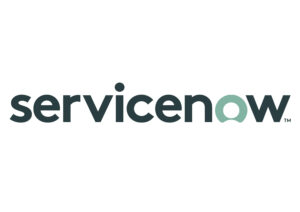White Paper: In an era of global recession, investment in field service systems is essential

This paper is available exclusively for FSN PRO/PRO+ members, but thanks to our partner on this project ServiceNow it is also available for a limited period to those on our FSN FREE membership tier. If you are already a member and cannot see the ‘read now’ button please make sure you are logged in.

Data usage note: By accessing this content, you consent to the contact details submitted when you registered as a subscriber to fieldservicenews.com to be shared with the listed partner of this premium content ServiceNow who may contact you for legitimate business reasons to discuss the content of this paper.
With the backdrop of some of the most turbulent economic environment globally for decades if not longer, the pressure of reduced CAPEX investment is set to drive even greater pressure on field service operations. At the same time we face the perennial dichotomy of needing to do more with less…
In the ever-evolving field service landscape, the pursuit of return on investment (ROI) has always been a critical driver for adopting technology and process improvements. The ability to demonstrate tangible benefits and cost savings has been the catalyst for organizations to embrace innovative solutions that enhance operational efficiency and customer satisfaction.
However, the economic pressure from the post-pandemic world has intensified the focus on ROI like never before. As the global recession takes hold, companies find themselves at a crucial juncture where survival and success depend on making astute investment decisions. Organizations must scrutinize every aspect of their operations, seeking avenues to optimize resources, reduce costs, and maximize returns.
In times of economic downturn, traditional approaches to business operations face significant challenges. Companies are confronted with the need to reconcile the desire to reduce capital expenditures (CAPEX) with the imperative to maintain and service their assets effectively. This dual mandate demands a careful balancing act, where organizations must find innovative ways to extract the most value from their existing infrastructure while minimizing investment in new assets.
One outcome of the reduced CAPEX approach is “sweating assets.” In an attempt to prolong life and maximize the value of existing assets, organizations face additional pressures. Field service providers, in particular, find themselves navigating a challenging dichotomy to meet customer requirements: the need to offer more with less. Compounding this issue is the aging workforce crisis, resulting in a scarcity of field service engineers. With an increasing workload and a diminishing workforce, field service organizations are under immense pressure to deliver efficient and effective service.
This challenging landscape becomes a crucial driver for adopting field service management solutions. By leveraging technology, automation, and optimized processes, organizations can achieve the delicate balance of doing more with fewer resources while maintaining high service standards and customer satisfaction.
Throughout this white paper, we will delve deeper into the impact of the global recession on the field service industry. We will explore how the economic pressure has magnified the importance of ROI, making it a critical factor in decision-making processes. Moreover, we will address the imperative of optimizing existing assets and shifting focus towards maintenance and service in times of economic downturn.
In this detailed paper, written by industry-leading author and analyst Kris Oldland, we explore the following:
- Lessons from History: Economic Challenges and the Field Service Industry
- The Counter-Intuitive Need for Investment in Economic Turbulence
- Identifying the Tools that will Unlock Productivity
- Selecting the Solution Providers that fit with your Organisation
- Integrating Customer Experience and Employee Experience
- Emphasizing Value Conversations and Defining ROI
- Executive Summary: Navigating Economic Challenges with Strategic Field Service Investments
This detailed and valuable paper is currently available on our forever-free subscription FSN FREE. This is only made possible thanks to the fantastic support of our partner on this discussion ServiceNow – so we would like to thank them for helping drive industry intelligence and excellence.

Data usage note: By accessing this content, you consent to the contact details submitted when you registered as a subscriber to fieldservicenews.com to be shared with the listed partner of this premium content ServiceNow who may contact you for legitimate business reasons to discuss the content of this paper.
White Paper: In an era of global recession, investment in field service systems is essential
With the backdrop of some of the most turbulent economic environment globally for decades if not longer, the pressure of reduced CAPEX investment is set to drive even greater pressure on field service operations. At the same time we face the perennial dichotomy of needing to do more with less…
In the ever-evolving field service landscape, the pursuit of return on investment (ROI) has always been a critical driver for adopting technology and process improvements. The ability to demonstrate tangible benefits and cost savings has been the catalyst for organizations to embrace innovative solutions that enhance operational efficiency and customer satisfaction.
However, the economic pressure from the post-pandemic world has intensified the focus on ROI like never before. As the global recession takes hold, companies find themselves at a crucial juncture where survival and success depend on making astute investment decisions. Organizations must scrutinize every aspect of their operations, seeking avenues to optimize resources, reduce costs, and maximize returns.
In times of economic downturn, traditional approaches to business operations face significant challenges. Companies are confronted with the need to reconcile the desire to reduce capital expenditures (CAPEX) with the imperative to maintain and service their assets effectively. This dual mandate demands a careful balancing act, where organizations must find innovative ways to extract the most value from their existing infrastructure while minimizing investment in new assets.
One outcome of the reduced CAPEX approach is “sweating assets.” In an attempt to prolong life and maximize the value of existing assets, organizations face additional pressures. Field service providers, in particular, find themselves navigating a challenging dichotomy to meet customer requirements: the need to offer more with less. Compounding this issue is the aging workforce crisis, resulting in a scarcity of field service engineers. With an increasing workload and a diminishing workforce, field service organizations are under immense pressure to deliver efficient and effective service.
This challenging landscape becomes a crucial driver for adopting field service management solutions. By leveraging technology, automation, and optimized processes, organizations can achieve the delicate balance of doing more with fewer resources while maintaining high service standards and customer satisfaction.
Throughout this white paper, we will delve deeper into the impact of the global recession on the field service industry. We will explore how the economic pressure has magnified the importance of ROI, making it a critical factor in decision-making processes. Moreover, we will address the imperative of optimizing existing assets and shifting focus towards maintenance and service in times of economic downturn.
In this detailed paper, written by industry-leading author and analyst Kris Oldland, we explore the following:
- Lessons from History: Economic Challenges and the Field Service Industry
- The Counter-Intuitive Need for Investment in Economic Turbulence
- Identifying the Tools that will Unlock Productivity
- Selecting the Solution Providers that fit with your Organisation
- Integrating Customer Experience and Employee Experience
- Emphasizing Value Conversations and Defining ROI
- Executive Summary: Navigating Economic Challenges with Strategic Field Service Investments
This detailed and valuable paper is currently available on our forever-free subscription FSN FREE. This is only made possible thanks to the fantastic support of our partner on this discussion ServiceNow – so we would like to thank them for helping drive industry intelligence and excellence.


Data usage note: By accessing this content, you consent to the contact details submitted when you registered as a subscriber to fieldservicenews.com to be shared with the listed partner of this premium content ServiceNow who may contact you for legitimate business reasons to discuss the content of this paper.


